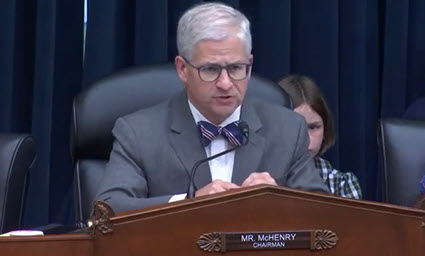
U.S. banking regulators issued two announcements on Oct. 20 related to their sweeping set of proposed rules to increase capital requirements for the nation’s largest banks, which could significantly affect liquidity available for commercial real estate transactions, impact asset values, and influence economic growth. The proposal, known as the “Basel III Endgame,” is the last major regulatory response designed to address failures from the global financial crisis of 2007-2008. (Bloomberg and Reuters, Oct. 20 | Roundtable Weekly, July 28)
Stakeholder Comments
- The Federal Reserve, Office of the Comptroller of the Currency (OCC), and the Federal Deposit Insurance Corporation (FDIC) announced an extension of the comment period on the Basel capital proposal from Nov. 30, 2023 to Jan. 16, 2024. Additionally, the agencies announced a quantitative impact study to clarify the estimated effects of the proposal, with data collection due the same date as the comments – Jan. 16. (Fed news releases, Oct 20)
- While the quantitative impact study is a positive development, the timing of the study fails to provide industry participants with the opportunity to assess its results or comment on the collected data before the Jan. 16 deadline. Regulators often grant the public ample time (120 days) to analyze and comment on such an impact study after it is released.
- The Basel proposal will be among the topics discussed at The Roundtable’s Real Estate Capital Policy Advisory Committee (RECPAC) Nov. 8 meeting in New York. RECPAC welcomes membership input as it works on a comment letter on the announcements and proposal. (Contact Roundtable Senior Vice President Chip Rodgers)
- In July, the regulators jointly approved the 1,100-page proposed rulemaking, which would substantially revise the regulatory capital framework for banking organizations with total assets of $100 billion or more
- Real Estate Roundtable President and CEO Jeffrey DeBoer stated in a March 2023 comment letter to Fed Vice Chair Michael Barr and other key regulators, “At this critical time, it is important that the agencies do not engage in pro-cyclical policies such as requiring financial institutions to increase capital and liquidity levels to reflect current mark to market models. These policies would have the unintended consequence of further diminishing liquidity and creating additional downward pressure on asset values.
Congressional Opposition

- Last week, House Financial Services Committee Chairman Patrick McHenry (R-NC), above, and Financial Institutions and Monetary Policy Subcommittee Chairman Andy Barr (R-KY) requested the Government Accountability Office (GAO) to examine the role U.S. federal banking agencies played in developing the recent Basel proposal. (McHenry-Barr Letter, Oct 20)
- Previously, McHenry and more than two dozen Republicans on the committee urged banking regulators to withdraw their proposal in a Sept. 13 letter sent in conjunction with the committee hearing, “Implementing Basel III: What’s the Fed’s Endgame?”
- The House Republicans’ letter claimed the scope and process of the banking regulators’ plan is flawed, and noted how the proposal was opposed by some members on the Federal Reserve and FDIC Boards. Their letter concluded, “Given those fatal problems with your Basel III Endgame proposal, we urge that it be withdrawn.”
Goldman Sachs’ 10,000 Small Businesses Voices recently announced the launch of a multifaceted national media campaign that will urge the Federal Reserve to abandon the proposed Basel III Endgame regulation. The campaign will feature new survey data showing 87% of small business owners say it is important for their elected officials to weigh in with The Fed about the impact of new bank capital requirements.
# # #
